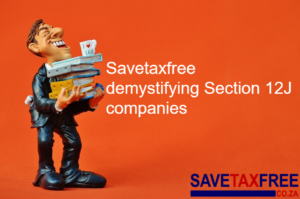SA vs. offshore: it’s about risk mitigation
Related Articles
Candice du Toit | 22 May 2015
In the last month South Africa has been rocked by a cabinet reshuffle, a double downgrade to junk status by two of the world’s most important ratings agencies, namely Standard & Poor’s and Fitch, and nationwide protests calling for the removal of the President elect. This turmoil has led to yet another big devaluation of the Rand leaving many wondering whether it is finally time for them to take their money (or at least some of it) out of South Africa.
Once thought of as the crowning jewel and powerhouse economy of Africa it seems as if South Africa’s sparkle is wearing off. Poor economic growth, an increasing current account deficit, high taxes and a poorly performing Rand mean that the money everyone works so hard for seems to go less and less further. The only news we seem to see today is talk of South Africa’s impending demise and many think, perhaps rightly so, that now is the time to consider investing offshore.
There are various risk factors to consider when contemplating whether or not you should get some offshore exposure in your portfolio; some risks to bear in mind are the following:
1. The first and most obvious aspect to consider is political stability: Is there a stable government in power with sound policies which are unlikely to be changed? Unfortunately, stability is something we as South Africans have not seen much of lately.
2. Secondly, buying power and stability of the currency: Does the currency in which your wealth is held maintain its buying power when compared to other currencies and is it relatively stable? The Rand has seen record breaking losses in the last 2 years so this is clearly another key area where South Africa seems to be failing dismally.
3. Thirdly, how do South African investments compare to offshore investments? We often hear that South African investments far out perform their foreign counterparts but is this really true? Well yes and no, although the returns you will see on South African investments will generally exceed that of offshore investments (on a percentage basis), if you weigh the performance of the JSE against the S&P 500 over the last 5 years in US dollar terms, the S&P is up by almost 60% whilst the JSE lost 20% of its value; and
4. Another possible factor to consider is the fees that offshore investment advisor charge and you might run the risk of being overcharged if you don’t do proper research and comparisons. Often these fees can end up being quite substantial, even to the point where they result in an ongoing shrinkage of your offshore assets.
5. Lastly, holding offshore assets in tax inefficient structures could unnecessarily deprive you of value: If you want to accumulate assets offshore it is best to hold offshore assets in tax efficient structures which can help maximise your asset growth. This is somewhere where Sovereign Trust (SA) Limited can be of great assistance, with offices in 26 countries we are perfectly positioned to set-up and manage a variety of offshore structures on behalf of our clients. We are also able to review existing structures for client’s who already have assets offshore in order to assist them in restructuring and ensuring their assets are held as efficiently as possible.
As with anything in life you rarely want to put all your proverbial eggs in one basket, it is no different when protecting your wealth and where you invest it. Diversification is key to protecting assets against a catastrophic loss in one particular area. That’s not to say that South Africa is on the verge of a catastrophe but why not mitigate your risk in the event that the doomsday prophets are proven right?
The decision to distribute wealth offshore is not one which is devoid of pitfalls in itself, there are exchange control and cost considerations which must be taken into account and fully appreciated. For this reason it is imperative that anyone looking to establish an offshore asset base use a reputable investment and trust company to assist with this process and that they obtain appropriate investment, tax and legal advice from the start.
Although we have one of the most beautiful countries in the world it seems that we live in a country rife with uncertainty and risk with the international community deeming our economy as “junk”. While creating an offshore asset base may not be an option for everyone, for those who are lucky enough to afford it, this is an invaluable risk mitigation tool if you do your reseach beforehand. Importantly, make an informed decision before you try to mitigate your risk by investing offshore.






